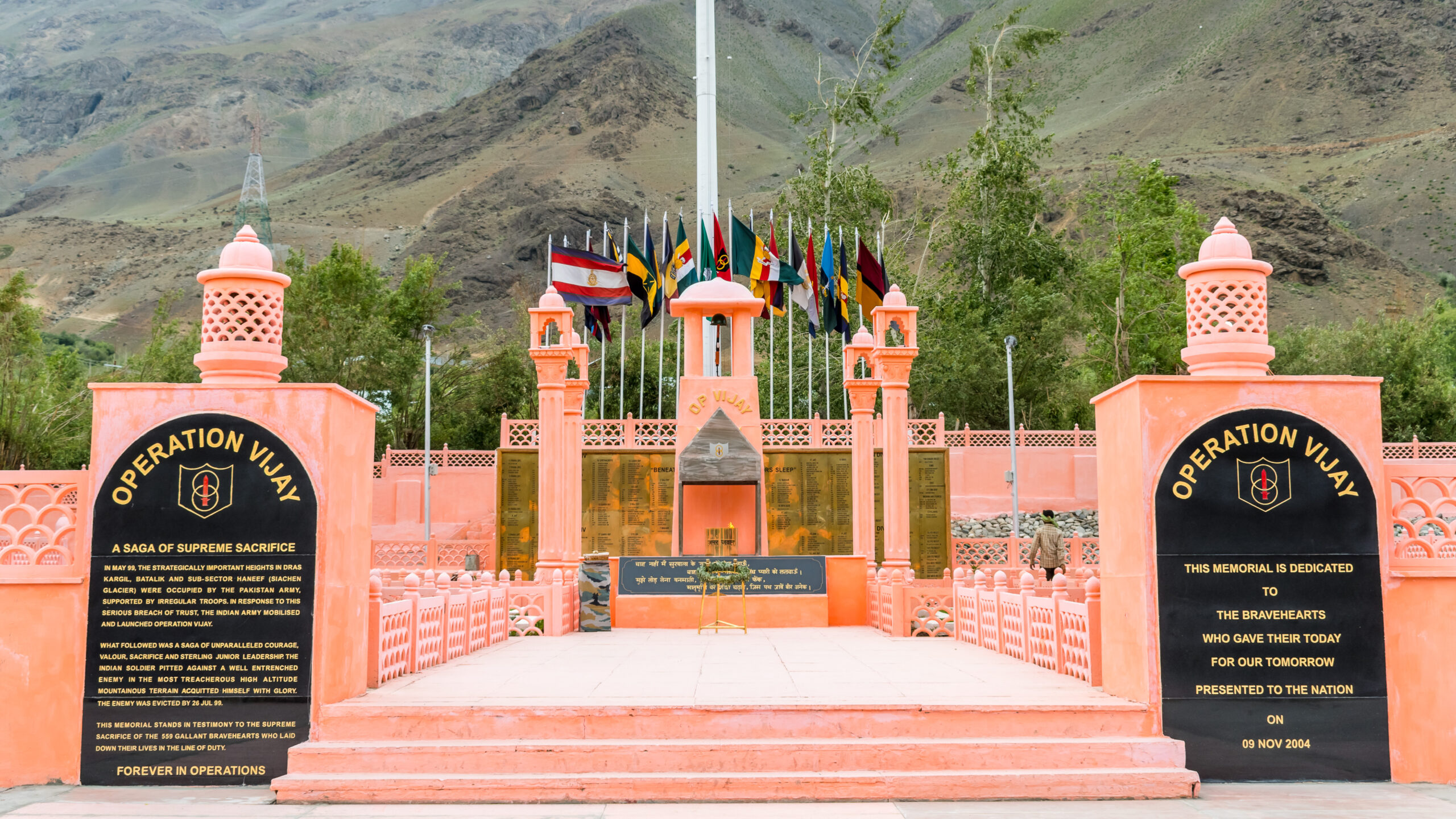India commemorates 25 years of Kargil war of 1999 as Vijay Diwas on 26th July, the last significant armed conflict with Pakistan—a high-altitude battle in the Himalayan foothills that teetered on the brink of nuclear escalation.
This clash in 1999 was just one chapter in a long history of division and warfare that has defined the relationship between these two neighboring nations since their independence in 1947.
View this post on Instagram
1947: Partition and Initial Conflict
The end of British rule in India at midnight on August 15, 1947, resulted in the partition of the Indian sub-continent into predominantly Hindu India and Muslim-majority Pakistan. The hastily arranged partition triggered mass sectarian violence, leading to the deaths of over a million people and the displacement of 15 million.
Kashmir, a Muslim-majority region positioned strategically between India and Pakistan, became the flashpoint for the first major conflict. As the region’s monarch hesitated in choosing between India and Pakistan, Pakistani-backed militants launched an attack.
The ruler of Kashmir sought India’s assistance, which led to full-scale war between the two nations. The conflict ended with the establishment of a UN-mediated ceasefire line in January 1949, now known as the Line of Control, which remains heavily militarized.
1965-71: Wars Over Kashmir and Bangladesh
The Historic ‘Simla Agreement’ corner !
The Simla Agreement, was signed between India and Pakistan on July 1972 at this corner of Himachal Rajbhawan , Shimla pic.twitter.com/abCXf9w6lt
— Prajwal Busta (@PrajwalBusta) March 17, 2024
A second war erupted in August 1965 when Pakistan invaded Kashmir again, aiming to control the entire region. The conflict concluded inconclusively after seven weeks, with thousands of casualties on both sides and a Soviet-brokered ceasefire.
In 1971, tensions flared as Pakistan attempted to suppress an independence movement in East Pakistan (now Bangladesh). The brutal conflict resulted in approximately three million deaths and millions of refugees fleeing to India. India intervened militarily, leading to a swift victory and the creation of Bangladesh. This victory greatly boosted the popularity of Indian Prime Minister Indira Gandhi, further reinforced by India’s first successful nuclear test in 1974.
1989-90: Kashmir Uprising
Long-standing grievances against Indian rule in Kashmir erupted into a full-scale uprising in 1989, exacerbated by allegations of rigged territorial elections. The conflict led to the mass exodus of Hindus and other minorities due to targeted violence by insurgents. The ensuing decades saw thousands of soldiers, militants, and civilians perish in ongoing clashes. Both sides faced accusations of severe human rights abuses, with India accusing Pakistan of supporting the insurgents.
1998-99: Nuclear Brinkmanship and Kargil Conflict

In 1998, Pakistan conducted its first public nuclear tests shortly after similar tests by India, drawing international condemnation and economic sanctions from the United States. The following year, Pakistan-backed militants infiltrated Indian-administered Kashmir, seizing strategic positions in the Kargil mountains. The conflict escalated, with Pakistan hinting at the potential use of nuclear weapons. Under intense international pressure, Pakistan withdrew its forces, but the episode highlighted the volatile nature of the two countries’ nuclear capabilities. The Kargil conflict resulted in at least 1,000 deaths over ten weeks and led to the ousting of Pakistani Prime Minister Nawaz Sharif by army chief Pervez Musharraf in a coup.
2008-Present: Ongoing Tensions and Diplomatic Efforts
The 2008 Mumbai attacks by Islamist militants, which killed 166 people including 29 foreigners, saw India accusing Pakistan’s intelligence service and suspending peace talks. While prime minister Narendra Modi made a surprising visit to Pakistan, briefly thawing relations.
However, a suicide bombing in Kashmir in 2019 that killed 41 Indian paramilitary troops led to retaliatory airstrikes, escalating tensions once more. The standoff was quickly defused, and Modi’s nationalist response helped secure his re-election later that year.
As India reflects on 25 years since the Kargil conflict, the fraught and often violent history between these two nations underscores the ongoing challenges to achieving lasting peace in the region.

